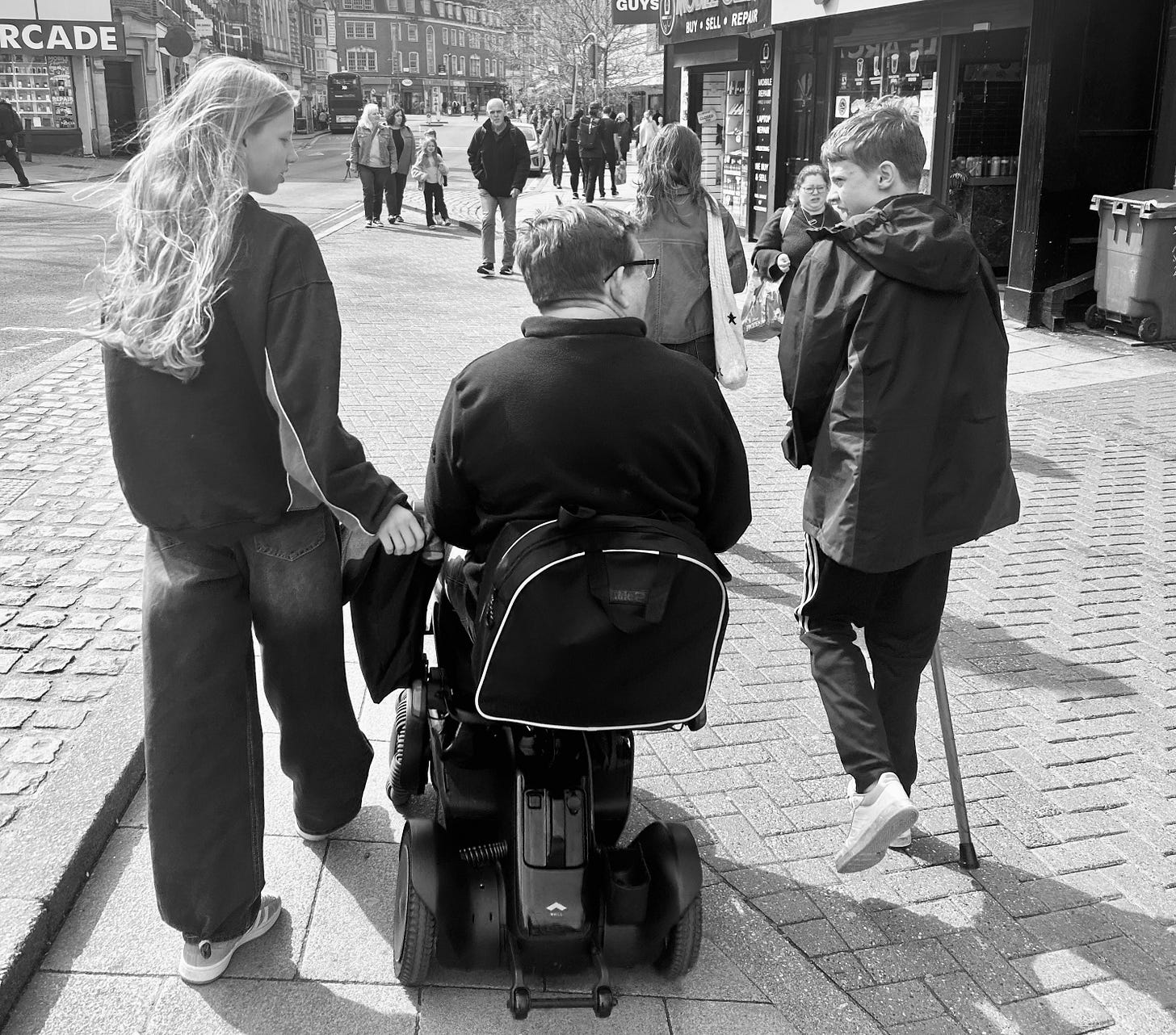When the System Fails: Living with Long Covid and the Hidden Cost of Disability
What I’ve learned since becoming disabled—and why we need to speak out.
Becoming disabled has opened my eyes to the emotional and mental toll it takes, especially with a chronic condition like Long Covid, which is so poorly understood and often dismissed. The truth about Long Covid is that many people don’t believe it exists, or assume it will resolve on its own.
What I didn’t foresee, however, was just how financially devastating becoming disabled would be. It has become one of my greatest sources of stress.
In October 2024, I officially retired from my role as a parish priest in the Church of England. I had expected that such an organisation would look after us, and while I’ve met many lovely and supportive individuals, the reality is that we’ve been left in a financially precarious position.
Yes, we’ve been provided with a house to rent, and for that I’m grateful. But the pension we receive doesn’t even cover half the rent. We’ve had to leave our previous home into financial uncertainty and were told no further support would be available—although the Archbishop of Canterbury’s office has assured me of their prayers.
There are some wonderful charities that support clergy in crisis, though most can only help with one-off costs. I’m not complaining—I know how fortunate we are in many ways. We were able to buy a wheelchair and some essential equipment thanks to this help. Without it, I’d have been stuck.
But the daily cost of living with a disability, especially when you’re unable to work, is incredibly hard. The recent rise in the cost of living in the UK has only made this worse.
“That’s what the benefits system is for, Paul” I hear you say—and you’d be right. After thirty-five years of paying taxes, I assumed we could rely on some form of support.
While we have managed to claim certain benefits, the process is gruelling. It’s practically a full-time job: endless medical assessments, complicated forms, long phone calls, and meaningless appointments at the local Job Centre. It’s exhausting, especially when you’re already sick.
It doesn’t end once the benefits are approved. Because Long Covid is still so misunderstood, many awards are only granted for short periods, meaning we find ourselves reapplying over and over again. It’s a continuous cycle of stress.
All this is hard enough without the growing threat hanging over every disabled person in the UK. The media regularly reports that the government is unhappy with the rising cost of welfare since the pandemic (I wonder why that’s happened?!), and hints that cuts are coming.
It keeps me up at night.
The mental load of living with Long Covid is already heavy. Add to that the financial pressure and a sense of national hostility, and the weight becomes unbearable.
And there’s more. Disability isn’t just about a loss of income. It comes with new and unexpected costs: needing help with daily tasks I once managed alone, paying for shopping to be delivered in bags I can carry, or ensuring we have food I can prepare safely.
Rachel, my wife, now works full time—because otherwise we would quite literally be homeless. But that has its own impact. The children want to go on holiday this year, but finding somewhere both accessible and affordable feels like an impossible task.
If all of this sounds like I’m moaning, then you’d be right. Today, I’m choosing to be honest about where we are. I hope that by sharing our story, it might help someone else feel less alone.
I’ve had my eyes opened to the everyday challenges disabled people face. I’m outraged—not just for myself, but for others in far more difficult circumstances.
If I can raise awareness, join communities, and contribute to change, then perhaps I can play a small part in helping people who, for whatever reason, don’t fit the expectations that society forces upon us.
The world is changing. But it feels like we’re leaving people behind.
I’m disgusted by what I see happening in my own country: how we victimise those who need help the most, while rewarding the wealthy and able-bodied.
It won’t change unless we come together and become a voice for those who feel like theirs has been taken away.


